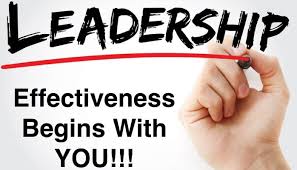Recently as I prepared for delivering a Leading Through Change programme I thought I would research the different leadership models that exist. Boy was that a bad idea, as there are a plethora of models all extolling some different perspective. Nothing right or wrong with any of them, but the challenge is that they all focus on something outside the leader. In essence, they forget that the leader is an integral part of the situation and that a leadership style is not something you can simply adopt. It must be something that comes from within. That’s why I love this quote:
“If you want to be a leader, the first person you must lead is yourself” Mike Scioscia.
In my first book Unbridled Success, I looked at the concept of Leadership Begins With You, and now executive coaches and faculty members Ray Luther and Eric Johnson of Indiana University’s Kelley School of Business have coined the phrase Self-Observant Leadership to describe the principle that you can’t effectively lead others until you know how to lead yourself.
Self-Observant Leadership occurs when you deeply understand your identity, compare it to your reputation (how others experience you) and then make meaning of the observations and choose to adapt. It is a refinement on authentic leadership as it acknowledges that as a leader you need to understand yourself and how you’re perceived, then making behavioural changes to become the leader you want to be, even if it means operating outside the identity you’re comfortable with.
So how do you deliberately practice Self-Observant Leadership? Luther and Johnson share the following 6 steps:
- Live your values.
Your values are the GPS which you live your life by. They shape what activities and behaviours you engage in and yet many people really know what their values are. Your identity is grounded in your values, and in your purpose - Move towards purpose.
Purpose is the other component of your identity. Understanding your profound Why, is what gets you out of bed in the morning. It is what drives your mojo and helps you sustain continual activity in the face of adversity. What’s the reason why are doing what you are doing? What legacy are you creating? What impact do you want to make in the world? With a clear understanding of your values and purpose in tow, you can then compare your identity to how you’re perceived. - Learn from feedback.
Feedback is the breakfast of champions, so pay attention to it, both internal and external. This will help you gain insights into how you’re perceived. Be open and ready to accept some things you don’t want to hear, because it is only by knowing more about ourselves and how we are perceived that we can hope to develop. - Be Present.
Self -Observant leaders live in the moment. They are present and grounded and so consciously aware of the effect they are having on others. - Reflect.
Reflection separates good leaders from great leaders. By understanding the gap between how you see your identity and how you’re perceived by others, you can then make adjustments. Journaling is a powerful tool here. Take 5 minutes at the start of every day to reflect on the values and purpose you want to embody and then review this for 5 minutes at the end of the day to see how you did. - Adjust.
Leaders take action and Self-Observant Leader are no different. They adjust their behaviours so they can be the best, both for themselves and their team. As leaders we need to have courageous conversations and yet for some people this might be outside their comfort zone, and yet to not have these conversations would not be serving your team members, who need to understand both the positive and negative about their performance. Whilst having courageous conversations might not be a leaders natural thing to do, to deprive team members of the opportunity to develop is also a travesty.
I’m curious to hear what you think about the principles of self-observant leadership and whether you subscribe to the tenant that “leadership begins with you”.

Julia Felton (aka The Business Wrangler) is the founder of Business HorsePower. Business leaders, entrepreneurs and executives hire her to accelerate their business performance by harnessing the energy of their people to work more collaboratively together. By aligning purpose with actions the team achieves exponential results as everyone starts pulling in the same direction.
Julia believes that business is a force for good and through designing purpose-driven businesses that leverage the laws of nature, and the herd, you can create businesses founded on the principles of connection, collaboration and community that make a significant impact in the world.






